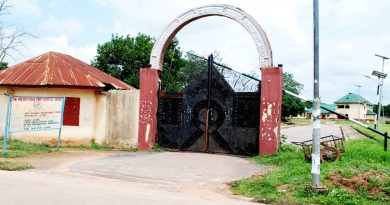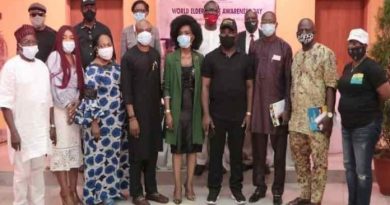Rebuilding Trust in the Electoral Process: IPC Hosts Multi-Stakeholders Dialogue
Oru Leonard
The International Press Centre (IPC), based in Lagos, Nigeria, lead implementing partner of Component 4 (Support to Media) under the European Union Support to Democratic Governance in Nigeria Phase 2 (EUSDGN II) project, announces its upcoming major forum. Scheduled for Monday, March 25, 2024, this event will convene about 100 electoral stakeholders to address the critical theme of “Rebuilding Trust in the Electoral Processes, Institutions and Elections.”
Following the success of the inaugural session held in Abuja, this subsequent edition of the media and civil society-driven forum aims to further stimulate meaningful discussions on how to reinforce commitments and approaches to multi-stakeholder collaboration for enhancing confidence in electoral processes. The initiative is also being embarked upon ahead of the off-cycle governorship elections in Edo and Ondo States later this year and preparatory activities towards the 2027 general elections.
The forum seeks to gather submissions and recommendations on how diverse stakeholders, including the Independent National Electoral Commission (INEC), the Media, Civil Society Organizations (CSOs), Law Enforcement Agencies, Political Party Leaders, Youth, Women, and the Public, can effectively fulfill their roles and collaborate to enhance the integrity of the electoral process in Nigeria.
Prof. Isaac Albert of the University of Ibadan will present the lead paper at the event, which will be chaired by Prof. Okey Ibeanu, a former INEC National Commissioner. The event will receive special remarks from the INEC Chairman, Prof. Mahmood Yakubu and EU Ambassador Samuela Isopi, among others. The event shall also be moderated by renowned broadcaster, Mr. Ambrose Somide of Raypower FM.
Mr. Lanre Arogundade, the Executive Director of IPC, in a statement emphasised the importance of transparent elections in bolstering citizens’ trust in the electoral system, particularly in developing democracies like Nigeria. He highlighted the correlation between encountering obstacles during elections and reduced confidence in elected officials, often leading to participation in activities opposing the ruling regime.
In anticipation of the forthcoming collaboration with key election stakeholders, especially the media, Mr. Arogundade reiterated the commitment to engaging in proposals and contributions aimed at enhancing public trust in Nigeria’s electoral system. This collaboration seeks to foster constructive discussions, address challenges, and work towards improving the overall integrity and transparency of elections in Nigeria.
Participation in the dialogue is also expected from various sectors, including the leadership of INEC, Political Parties represented by the Inter-Party Advisory Council (IPAC), key institutions such as the National Orientation Agency and Security Agencies, as well as representatives from traditional and religious bodies, CSOs, the European Union (EU) Delegation, EUSDGN Partners, Labour Unions, and Community Leaders.
This initiative is supported by the European Union.
About IPC: The International Press Centre (IPC) is a non-governmental organization committed to promoting media freedom, democracy, and transparency in Nigeria.
About EUSDGN II: The European Union Support to Democratic Governance in Nigeria Phase 2 (EUSDGN II) project aims to strengthen democratic governance, accountability, and electoral processes in Nigeria through various interventions and partnerships.
(IPC Media)




